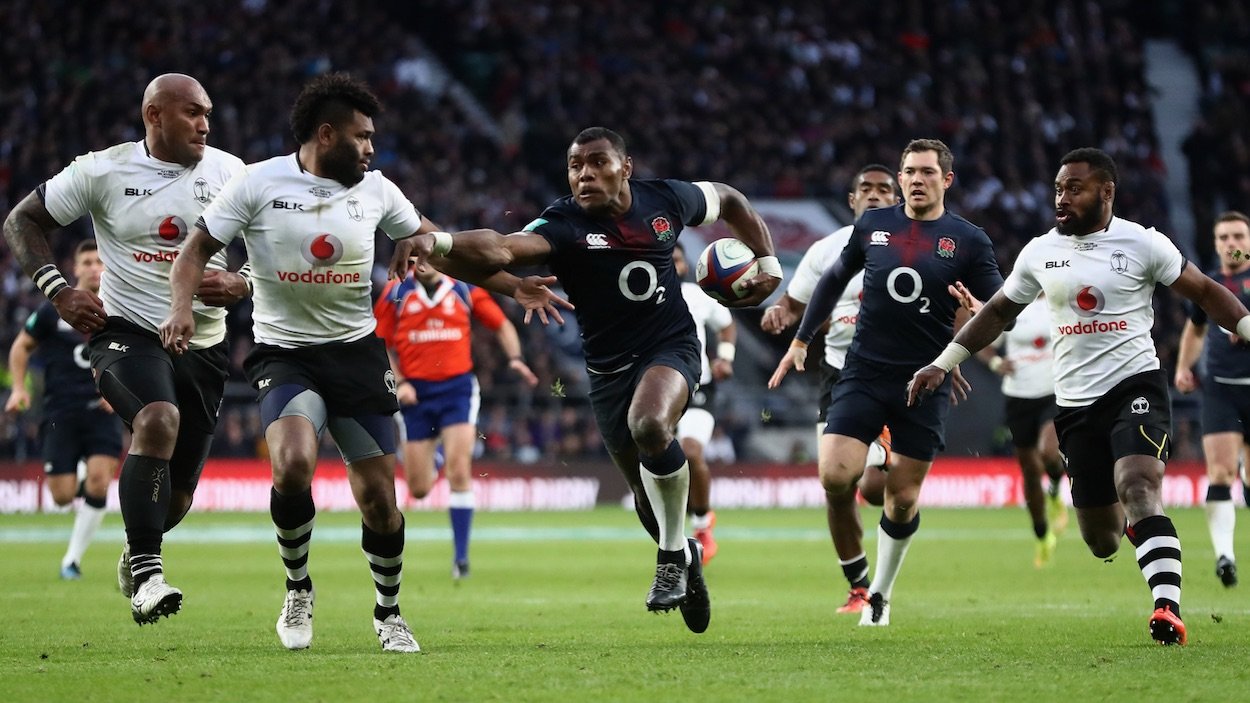The Autumn Internationals have gone a long way to raising hopes of a competitive 2017 Lions tour of New Zealand, writes Peter Bills, but one part of the Northern Hemisphere game in particular still needs a lot of work.
Two things have emerged with crystal clarity from a rumbustious last few weeks of rugby in the Northern Hemisphere.
One is that Ireland and England have moved significantly ahead of their rivals in this part of the world. England’s renaissance under coach Eddie Jones has been apparent for some time. They are currently on an 11-match winning run and producing on a consistent basis the type of power allied to pace rugby that they must possess to test the best defences in the world game.
But the trouble Ireland gave the world champion New Zealanders over two Test matches, beating them in Chicago and narrowly losing in Dublin last Saturday, was also highly impressive and propitious for the 2017 British & Irish Lions who will tour New Zealand.
If both countries maintain their solid progress then that Lions Test squad should be dominated by Englishmen and Irishmen. That could make the Lions a dangerous unit, even in a country where they have only ever won once in more than a century of Lions Test series.
The composition of that touring squad will doubtless be influenced by events at Lansdowne Road Dublin on Saturday 18 March next year. On that day, the final round of matches in the 2017 Six Nations Championship will be played. The final game, with a 5pm kick-off, will feature Ireland v England. Not only a 6 Nations Championship title could well be on the line but also the make-up of the Lions’ squad.
Given the physicality both countries have shown in tough matches this year against New Zealand and Australia, the day is already being dubbed ‘Hard Hat Saturday’. No wonder.
But within the small details of their latest Test matches, Ireland’s 9-21 loss to New Zealand and England’s 58-15 destruction of Fiji, lies the second important factor, one which both countries would do well to address and improve.
[rugbypass-ad-banner id=”1475535264″]
Ireland went down to the All Blacks despite enjoying an astonishing territory percentage advantage of 70-30% and a superiority in possession of 66-34%. Now I know that statistics can be twisted and turned to prop up or destroy any scenario. But it is hard to argue with these. From them, it follows that Ireland should have won the match.
One important reason why they didn’t comes from another statistic. For all their dominance of the ball and position on the field, Ireland managed just seven offloads in the entire game. The reason New Zealand survived this onslaught was that time and again, the Irish ball carrier went to ground, rather than maintaining continuity through offloads.
By contrast, New Zealand, starved for so long of ball and forced to defend, still achieved 15 offloads. This is their style, their mantra.
At Twickenham, England ran in a remarkable nine tries against the blitzed Fijians. Yet astonishingly, England managed only six offloads. The Fijians achieved 17.
Now some will carp at the value I put on these specific statistics. They will sneer and say ‘England scored nine tries. Ireland had the All Blacks on the rack for much of the game in Dublin and beat them in Chicago. What are you on about’?
What I am on about is critical to the Lions chances in New Zealand next year. For the fact is, in this day and age, you only rupture completely a top class rugby nation’s defence if you can maintain momentum in an attack.
Ireland failed in Dublin because by going to ground so often with the ball, New Zealand’s highly structured defence had time to re-align. Inevitably, it was under serious and sustained pressure but that wasn’t enough. Ireland couldn’t free the ball from the breakdown quickly enough to find gaps in the defensive line and score tries.
Sure, England overran Fiji. But they’re not going to run around a defence as good as New Zealand’s nine times to score tries.
New Zealand has built its world supremacy on many factors, but one of the most crucial is their ability to keep the ball alive, to commit tacklers but free the ball in the same instant. Do that often enough and the defence will simply run out of numbers. This is as certain as day follows night.
If teams don’t do this, they will end up aping Ireland at the weekend – waves and waves of attacks ending up without reward.
New Zealand proved the point right at the start in Dublin, keeping the ball for 183 seconds, constantly freeing it from tackles, moving the point of the attack until the defence eventually just ran out of numbers.
None of this is rocket science, of course. But the fact remains, both Ireland and England have to improve on such dismal offload statistics if they are to prosper against the best.

































































